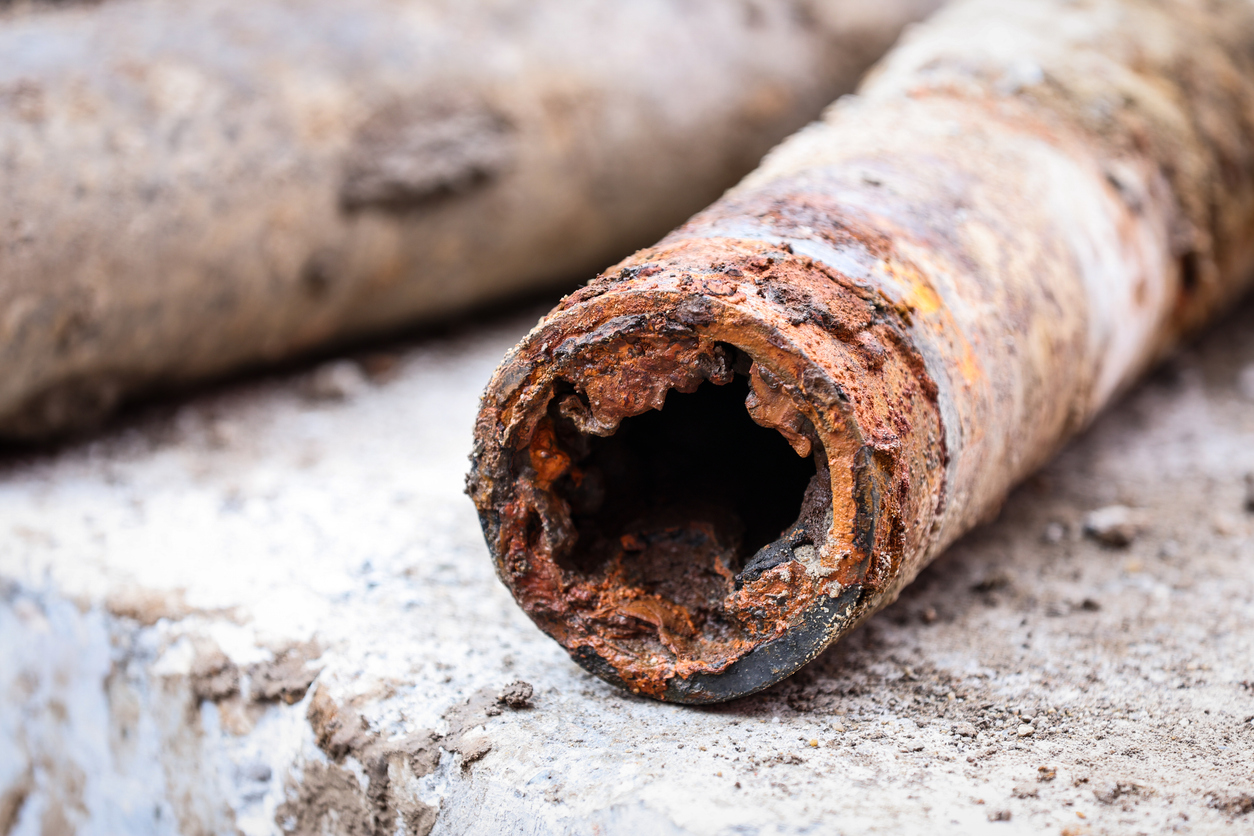A slow-draining sink or tub might not seem like an urgent problem, but during the winter months, clogged drains can quickly escalate into major plumbing issues. The cold weather makes it easier for grease to harden, increases the risk of pipe blockages, and can even lead to underground pipe damage due to tree root infiltration.
If you’ve noticed that your drains are moving slower than usual this winter, don’t wait until it becomes a full-blown plumbing emergency. Let’s explore why drains clog more frequently in the colder months, what hidden issues might be causing it, and what you can do to prevent serious problems.

1. Grease and Oil Buildup: A Major Winter Culprit
Why It Happens
Winter means more home-cooked meals, holiday feasts, and, unfortunately, more grease and oil making their way down kitchen drains. While grease may seem harmless when it’s in liquid form, it quickly hardens as it cools, forming stubborn blockages inside pipes.
Signs of Grease Buildup
- Water drains slowly after cooking
- Foul odors coming from the kitchen sink
- A gurgling sound when draining water
How to Prevent It
- Never pour grease, fats, or oil down the drain—let them solidify and dispose of them in the trash
- Rinse greasy dishes with cold water before washing to prevent oil from liquefying and sticking to pipes
- Use a drain strainer to catch food particles before they go down the drain
If your kitchen sink is draining slowly despite your best efforts, it may be time for a professional drain cleaning service.

2. Cold Temperatures Harden Waste in Pipes
Why It Happens
Just as cold weather makes grease solidify, it also causes other types of waste—such as soap scum, food debris, and even small amounts of organic matter—to harden and stick to the walls of your pipes. Over time, this buildup reduces the space inside your pipes, slowing drainage and increasing the risk of a complete blockage.
Signs of Winter Waste Buildup
- Slow drainage in multiple fixtures around the house
- Water pooling in sinks or bathtubs before draining
- Drain flies or other small pests near drains
How to Prevent It
- Flush drains with hot water weekly to help break up debris buildup
- Use a mixture of baking soda and vinegar to naturally clear mild clogs
- Avoid washing fibrous foods (like potato peels) or coffee grounds down the drain
If buildup has already created a major blockage, sewage line repair services may be needed to restore proper drainage.

3. Tree Root Infiltration: A Hidden Winter Problem
Why It Happens
Even though trees go dormant in the winter, their roots continue to grow underground in search of water sources. If there are cracks or weaknesses in your sewer line, tree roots can penetrate the pipes, causing blockages and slow drainage.
Signs of Tree Root Damage
- Slow drains in multiple areas of your home
- Frequent sewer backups or foul odors coming from drains
- Gurgling noises when flushing toilets
How to Prevent It
- Have a plumber inspect your sewer lines for tree root growth before winter
- Avoid planting large trees near underground sewer lines
- Schedule sewage line repair if you suspect root infiltration
Tree roots can completely block a sewer line over time, so it’s crucial to address this issue before it turns into a plumbing disaster.

4. Frozen Drain Pipes: A Worst-Case Scenario
Why It Happens
In extreme cold, the water sitting in your drain pipes can freeze, causing blockages and even pipe bursts. This is more likely to happen in exposed or poorly insulated pipes, such as those in basements, crawl spaces, or exterior walls.
Signs of Frozen Drain Pipes
- No water draining at all
- Ice buildup around exposed pipes
- Strong sewage odors from drains
How to Prevent It
- Insulate exposed pipes in unheated areas of your home
- Keep cabinets open to allow warm air to circulate around pipes
- Let a slow trickle of water run overnight in extreme cold to prevent freezing
If your pipes freeze and burst, you may need water line repair services to prevent costly water damage.

When to Call a Professional for Slow Drains
If your drains are moving sluggishly and home remedies aren’t helping, it’s time to bring in a professional. Da Vinci’s Best Plumbing specializes in drain clearing, sewer line repair, and water line services to keep your plumbing system running smoothly all winter long. Our expert team can quickly diagnose and fix slow drains before they turn into expensive emergencies.

Restore Proper Drainage – Call Da Vinci’s Best Plumbing Today!
Don’t let slow drains turn into a winter plumbing nightmare. If you’re experiencing drainage issues, Da Vinci’s Best Plumbing is here to help with professional inspections and repairs. Call (971) 220-8685 or visit our contact page to schedule an appointment.

